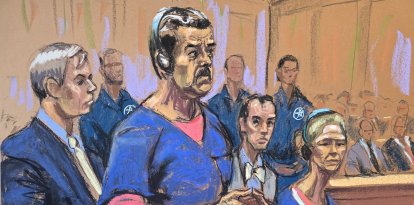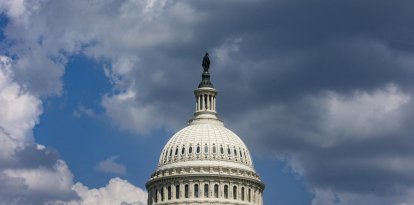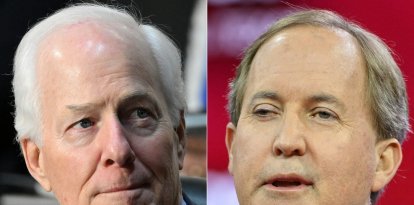Thomas Sowell exposes the fallacies of social justice and systemic racism in his new book
Per usual, the economist presented his book on the Hoover Institution's "Uncommon Knowledge" program, hosted by Peter Robinson.

Thomas Sowell exposes the fallacies of social justice and systemic racism in his new book
Thomas Sowell is considered one of the most important authors and political thinkers in the United States. Despite cultivating a low profile and rarely giving interviews, each of his appearances soon goes viral on social media. His career led him to become a leading exponent of property, limited government, free markets and, above all, common sense.
As Walter Williams once defined him, "wherever he went, the smartest person in the room," he has a habit of writing a lot. Indeed, he published 11 books since he turned 80 in 2010."
His writings often focus on debunking popular beliefs about different topics. In the words of Victor Davis Hanson, "He doesn't care about cheering or making people angry, but telling them what the data says. That has led him to be unpopular on popular topics but riddled with misinformation. (...) Sowell looks for evidence, makes a diagnosis based on that evidence, and then offers a solution to solve that problem.".
Fallacies of Social Justice
Now months after turning 93, he published his latest work: "Fallacies of Social Justice." As usual, he presented it to society on the Hoover Institution's " Uncommon Knowledge," program, hosted by Peter Robinson. Both listened to an excerpt from Martin Luther King Jr.'s famous speech, then moved on directly to the contents of the book. According to Sowell, Dr. King's teachings were not very well internalized by social justice advocates.
"Dr. King's message was equal opportunity for individuals regardless of race. In the years that followed, the goal changed to equal outcomes for groups, what now rose to dominance was the social justice agenda", the economist wrote in his latest publication.
The fallacy of equal opportunities
He was then asked what would happen if social justice was taken to the extreme, a scenario in which everyone would have everything they wanted. He replied, "we would kill each other", since the promoters of this doctrine believe that everyone should get the same results. "Unfortunately, the conditions are not in place for that to happen," he added.
As exemplified in the book, if a family has five children, the first child is more likely to be a "national merit finalist." In fact, they are statistically more likely to be a national merit finalist than their four siblings combined. "Even in near-ideal conditions. They are born from the same parents raised under the same roof. They are not the same".
The book lists a series of fallacies that it seeks to unmask. The first is equal opportunities. Sowell explains that, even in a world that is supposed to be "fair" for all, there is no way that all items are representative of the population and demographics as a whole.
The fallacy of chess pieces
Robinson references John Rawls, the author of "A Theory of Justice," one of the most influential books among intellectuals of the second half of the twentieth century. "Rawls refers to things that society should arrange. Interior decorators arrange, governments compel. It is not a subtle distinction," Sowell wrote in his book.
He then explained the chess piece fallacy, which occurs when a person "seems to imagine that he can arrange the members of a great society with as much ease as the hand arranges the different pieces on a chess-board."
This of course assumes that central planning can produce results superior to those produced by decisions that manifest the tastes and preferences of individuals pursuing their own self-interest.
One of the big problems that the government has when it comes to managing or trying to manage society in this way, is that "they do not pay any price when they are wrong", while the people for whom they decide pay a higher price.
Racial fallacies
In this passage, the author sets out to put an end to the belief that racism is the explanation for any disparity between groups.
Although all the content of the book is laid out in the present, Sowell began by going back about a hundred years, asserting that progressives in the early twentieth century considered immigrants genetically inferior, in the same way that racists in the South considered African Americans.
With this in mind, the author notes that "racial assertions have ranged from the genetic determinism which proclaimed that race is everything as an explanation of group differences to the opposite view, that racism is the primary explanation of group differences".
How did this belief come about? For Sowell, people solidified their personal beliefs in undergraduate degrees and decided to end the discussion, backed by their high IQs. "A high IQ and little information is a very dangerous combination," he stated over Robinson's complicit laughter.
Despite Sowell's analytical style of writing, going through all the corresponding hypothetical stages, the host noticed a certain anger in the lines that talked about modern progressivism and race. In particular, how the race card is responsible for everything. He then prepared to read two passages from the book:
"The median income of black families has been below the median income of white families for generations. But the median per capita income of Asian groups is more than $15,000 a year higher than the median per capita income of white Americans. Is this the white supremacy we are so often warned about?"
"For more than a quarter of a century, in no year has the annual poverty rate for married black families been as high as 10%. And in no year has the poverty rate for Americans as a whole been as low as 10%. If black poverty is caused by systemic racism, do racists make an exception for married blacks?".
"Well, I guess you're right to be angry," Robinson joked after reciting them out loud.
Sowell then explained that, from 1940 to 1960, poverty for African Americans in the United States had gone from 87 percent to 40 percent. Ten years later, by 1970, it was 30%. So he denies those who attribute the reduction of poverty in this group to the Civil Rights Act of 1964, which, according to him, was fundamental to guarantee the constitutional rights of African Americans in the South.
By 1940, only 17 percent of African-American children were raised in single-parent households, a number that quadrupled to 68 percent after the affirmative action reforms of 1970.
"Tom, could you read a passage to end our talk?"
In a scene rarely seen on "Uncommon Knowledge," a program that for many years featured leading thinkers and decision-makers worldwide, Robinson opened a copy of the book and asked Sowell to recite an excerpt to end the interview.
"Do we want the mixture of students who are going to be trained to do advanced medical research, to be representative of the demographic makeup of the population as a whole, or do we want students with the highest probability of finding cures for cancer and Alzheimer's?" he began.
"Do you want airline pilots chosen for demographic representation of various groups, or would you prefer to fly with pilots who are chosen for their mastery of all the complex things that increase your chances of arriving safely at your destination? Consequences matter or should matter more than some attractive or fashionable theory. More fundamentally, do we want a society in which some babies are born into the world as heirs of pre-packaged grievances against other babies born the same day blighting both their lives, or do we want to at least leave them the option to work things out better in their lives than we have in ours?"Sowell concluded.

























